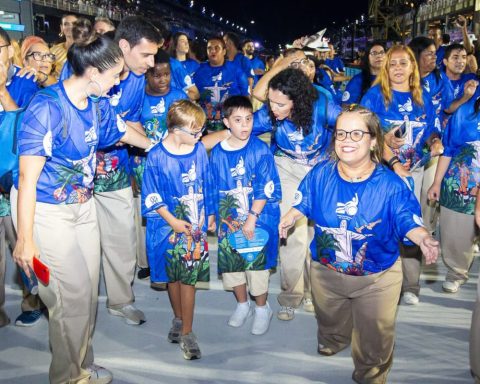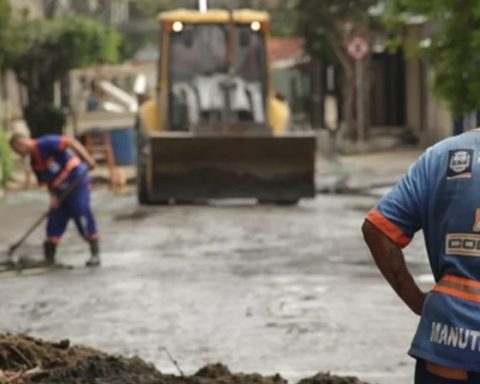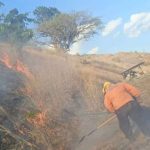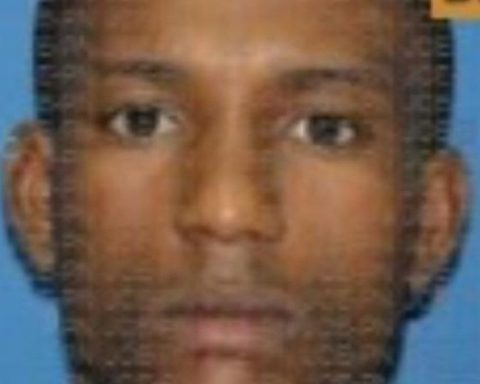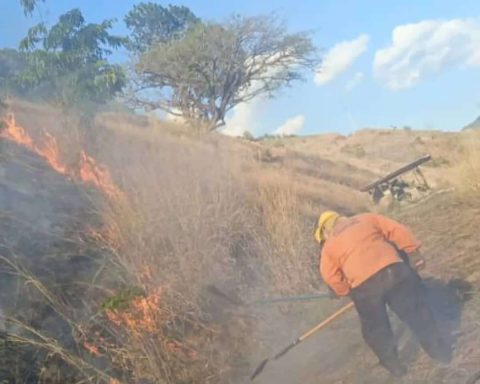“Mommy, will I be able to go to school?” “Why is there a massacre?” Professor Gina Vieira, a researcher in education in the Federal District, was stunned when her 12-year-old son heard the word “massacre” and questions that require more than a simple answer: they demand attention, available ears, seriousness, serenity and acceptance.
“Families often refuse to talk [sobre atentados tornados públicos em escolas e outros ambientes] because they believe that this can traumatize the child. But children are in a world where they are viscerally exposed to everything that happens,” says the researcher in education, who has awarded projects in the field of education and human rights.
She explains that talking to children about what is happening requires parents to overcome the naive perspective of believing that violence at school is something related to the school environment. Gina Vieira understands that messages of hate and misinformation have come to occupy a central place in the country.
“Parents need to listen to children and be aware of signs that they may be scared, apprehensive and afraid”, says Gina Vieira.
Welcoming these feelings is the right word, according to psychology professor Belinda Mandelbaum, from the University of São Paulo (USP). “In a first moment, it is necessary to listen to what reached them. Listen to fears and impressions. From this listening, adults can, in some way, contribute to a broadening of the child’s understanding of what happened”. Thus, adults must be available to answer the children’s questions, listen and think with them about the questions they have.
For psychopedagogue Ana Paula Barbosa, who is also a psychology professor and researches child development, it is fundamental that adults do not deny children the possibility of feeling and getting emotional. Families need to be willing to have this conversation.
“They will ask: ‘Mom, what’s going on?’, ‘Did the children die?'” Don’t deny it and don’t move away. Embrace the child and ask where she heard that information. Then, bring the child close. Ask what she is feeling and explain what fear is”, ponders the professor at the University Center of Brasília.
The teacher recommends that it is possible to explain that fear is a feeling and that families and people at school are working to take care of her safety.
An opportunity, according to Ana Paula Barbosa, to identify that it is not good to be violent, but that some people use violence. “We can talk about fear to children to externalize this feeling in some way. It is still in the development process. Make it clear to her that if the child is afraid at school, she can call the teacher, ask for help, talk about her feelings”.
Especially because, according to researcher Danila Zambianco, from the University of Campinas (Unicamp), sometimes, the adult causes even more fear in the child, since it enhances something that may even have gone unnoticed. “It is important that families give space for children to say what they perceive and that they express feelings”.
Instead of asking the child if he knows anything about violence, ask if something different caught his attention. “This means that the adult needs to be careful not to judge what the child brought”.
The experts interviewed by Brazil Agency evaluate that it is important, as much as information, to respect when children express discomfort in going to school. In the event of an eventual absence, it is important that the responsible adults indicate that they are aware of all the safety measures taken.
According to the researchers, adults also transmit anxiety and concern. And these signals are picked up by the antennae of children’s sensitivity.
teenagers
Although they manage to reflect on crises in a more elaborate way, adolescents also require very special attention in relation to what they hear and receive from the world. “We still think that teenagers have some skills more than children, but teenagers’ brains are also developing”, points out teacher Ana Paula Barbosa.
“Adolescents live in the midst of discoveries and even register some episodes in a distorted, idealized or even romantic way. To deal with the teenager, playful components are not usually used. risks so that the person understands better what is going on.”
Another measure that adults can take is to call attention to teenagers not to satirize the events, calling them to moral responsibility in the face of news of tragedy. “What kind of humor is this that is done above the suffering of some people?”
digital abandonment
The exhibition reaches the living room from the TV on or from the cell phone that someone always has at hand. Parallel to the terrible moment of violence, Gina Vieira points out that children are exposed to a kind of “digital abandonment”. “Parents are buried with work. Overburdened families and children are often addicted to mobile devices.”
Psychopedagogue Ana Paula Barbosa recommends that those responsible approach the children and observe to find out what they are looking at or listening to.
“The strongest news should be avoided.” But she emphasizes that this shouldn’t be a reason to avoid the subject because the information can arrive distorted from elsewhere.
These distortions via social networks are dangerous, says Professor Belinda Mandelbaum, a researcher at USP’s Family Studies Laboratory.
“It is necessary to understand what all this technology means for them and also be able to show the risks involved. Everything that children are not yet able to see”.
This approximation in relation to digital media is the role of the family and the school, each with their own characteristics and responsibilities. “Children can receive information that can be very dangerous. They need adults.”
The role of schools
The researchers see that school professionals must be active participants so that children and their families feel that the educational space is welcoming. “It is important that, as part of the dialogue with children, schools establish dialogues. Families need to feel part of building a culture of peace at school,” says Gina Vieira.
Professor Ana Paula Barbosa argues that a moment like this requires teaching units to understand that it is necessary to invest more in mental health programs for all.
“It’s time for the school to review some papers. It can no longer be just a content space for mathematics, Portuguese, geography”.
They defend that the school is a space for human development, for learning that does not fall into the test.
In addition, the teachers add that the moment provides reflection on the need for the school meeting to be more than just dealing with the children’s grades, but also that dialogue and programs on diversity, bullying and feelings are part of the school routine, and not just in moments of crisis.
“Miracles are not performed in schools. It is necessary to equip them with more mental health professionals. What is happening shows this need”, says teacher Ana Paula Barbosa.
In opposition to the human role of schools, there is, in the opinion of the researchers, a part of society that spectacularizes and monetizes violence. “We are shocked when violence appears at school, but it is mirroring what is happening in society”, says Gina Vieira. For this reason, she defends that the school has guaranteed spaces for listening and discussion.
“The school cannot give up its educational dimension in a perspective of integral, human and critical education that celebrates diversity and the culture of peace”, says Gina Vieira.
For teacher Belinda Mandelbaum, it is also necessary to take advantage of the moment to make a very broad reflection on events within schools. “There is a lot of violence, mistreatment, violent verbal communications, and even aggressions”.
At school, unlike the intimacy of the home, the experience is collective, as highlighted by Danila Zambianco, from Unicamp. “At school, it is also necessary to emphasize the spirit of cooperation and solidarity”. Unlike fear, according to experts, generosity and respect are simple lessons for children to understand and that adults can pay more attention to.
? In short, parents and teachers must listen to be able to guide.
Children and teenagers need to feel welcomed, say experts
1 – It is important to preserve children, but not hide, lie or run away from issues such as violence in schools
2 – Children must be informed that adults are attentive to their safety
3 – It is essential that the adult is available to talk
4 – Adults should not judge the feelings of little ones (or teenagers)
5 – Observe and approach children to identify what they are receiving via social networks
6 – It is important not to enhance an event
7 – Explain that fear is part of the life of every human being and that children are protected by adults
8 – Parents and education professionals must be closer to ensure serenity in the face of the moment
9 – Adults should guide teenagers against satirizing or distorting events
10 – Children should be encouraged to express themselves, but not forced
Complaints
Reports about threats of attacks can be made to the Safe School channel, created by the Ministry of Justice and Public Security, in partnership with SaferNet Brasil. The information sent to the channel will be kept confidential and there is no identification of the complainant.
Access the site to make a complaint.
In case of emergency, it is advisable to call 190 or the nearest police station.



